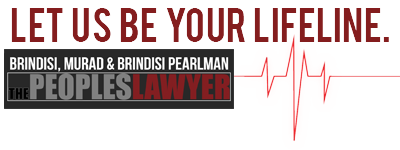We’ve all heard of them. Many of us have taken them on more than one occasion. When you fall ill, you take antibiotics.
Antibiotics are prescribed to individuals fighting a disease caused by germs like bacteria or a selection of parasites. Antibiotics can be taken by mouth in the form of liquid, capsules, tablets, or by injection. There is a variety of antibiotics available and come in several brand names.
Common antibiotics include:
• Penicillins
• Tetracyclines
• Aminoglycosides
• Cephalosporins
• Macrolides
• Quinolones
• Clindamycin
• Metronidazole
• Sulfonamides
• Fluoroquinolone
Antibiotic Resistance
Antibiotics have been widely used for many decades. Due to the constantly growing use, there is a risk that the human body has developed a resistance to the drug. Unfortunately, up to 50 percent of the time, antibiotics are not ideally prescribed, sometimes given when they are not needed, in incorrect doses, or duration.
What are Fluoroquinolone Antibiotics?
Fluoroquinolone antibiotics are reported as being the most frequently used antibiotic in the United States. Fluoroquinolones are commonly used to treat a variety of illnesses like respiratory and urinary tract infections (UTIs). Over 23 million individuals have received a prescription for fluoroquinolone antibiotics in 2011 alone. Fluoroquinolones make up approximately 16.6 percent of the world market for antibiotics. Medical experts predict the demand for antibiotics to keep growing, estimating fluoroquinolone antibiotics to produce over $7 billion in revenue by 2019.
Fluoroquinolone antibiotics are used to treat diseases such as:
• Bronchitis
• Pneumonia
• Sinusitis
• Skin infections
• Gastroenteritis
• Urinary tract infections (UTIs)
• Pelvic inflammatory disease
• Typhoid fever
• Joint and bone infections
Fluoroquinolone Antibiotics Side Effects
While sometimes fluoroquinolones can be life-saving, they can also produce potentially permanent side effects. Studies have linked fluoroquinolone antibiotics with damage to the lining of the aorta, the largest blood vessel in the human body; usually causing dissection, or tears, and enlargement or bulging aneurysms. This type of damage to the aorta may lead to leaks or rupture which could be deadly.
Fluoroquinolone antibiotics have also been connected to peripheral neuropathy and tendon ruptures, and permanent nerve damage that can leave people disabled.
Victims have suffered from side effects such as:
• Aortic aneurysm
• Aortic dissection
• Nerve damage including peripheral neuropathy
• Stomach problems
• Hallucinations
• Headaches
• Skin rash
• Angioedema
• Abnormal heart rhythm
• Seizures
Fluoroquinolone Antibiotics and Nerve Damage
Nerve Damage has been reported as common among fluoroquinolone antibiotics users. Peripheral neuropathy is damage to the nerves that send information to and from your brain and spinal cord to the rest of your body. Symptoms are dependent on which nerves are affected by the damage, however, the usual symptoms include numbness, tingling, burning, or shooting pain in the arms and legs. The link between peripheral neuropathy and fluoroquinolone antibiotics has existed since 2004. Reports have claimed that these antibiotics can cause long-lasting or even permanent nerve damage in patients who have taken this medication.
Am I at risk? Common Drugs Containing Fluoroquinolone Antibiotics:
• Levofloxacin (Levaquin)
• Ciprofloxacin (Cipro)
• Gemifloxacin (Factive)
• Norfloxacin (Noroxin)
• Moxifloxacin (Avelox)
• Ofloxacin (Floxin)
While you may be concerned if your medication is listed above, it is important to talk to your doctor before you stop taking any medication.
If you or a loved one has taken UTI antibiotics or another fluoroquinolone antibiotic, and suffered severe side effects such as an aneurysm or nerve damage, you should consult an experienced personal injury attorney. You need Brindisi, Murad, Brindisi & Pearlman on your side. Contact us for a free consultation today.
Share this blog with your friends…

CONTACT US FOR A FREE CASE EVALUATION
Related Blogs
Invokana: Know The Risks
Invokana, also known as canagliflozin, is an oral diabetes medication that works to control blood sugar levels. Combined with diet and exercise, the drug is prescribed to treat individuals suffering from Type 2 diabetes. While it does help some, it does come...
Xarelto Lawsuit Update: Do You Have A Case?
Millions of Americans suffer from blood clots and strokes every day. In order to prevent these conditions from occurring, physicians often prescribe a blood thinner. A popular type of blood thinner medication is Xarelto. Many choose Xarelto over other blood...
Side Effects Of Lexapro
For millions of Americans, Lexapro provides relief for depression symptoms. In fact, the drug earned $355 million in 2011 alone. Lexapro is medication commonly prescribed to treat those with depression and anxiety disorder. First introduced in its generic form...
Injured In An Accident?
Contact BMBP Today!






BRINDISI, MURAD & BRINDISI PEARLMAN
UTICA OFFICE
Utica, NY 13501
OFFICE HOURS
MONDAY – FRIDAY
9AM-5PM


